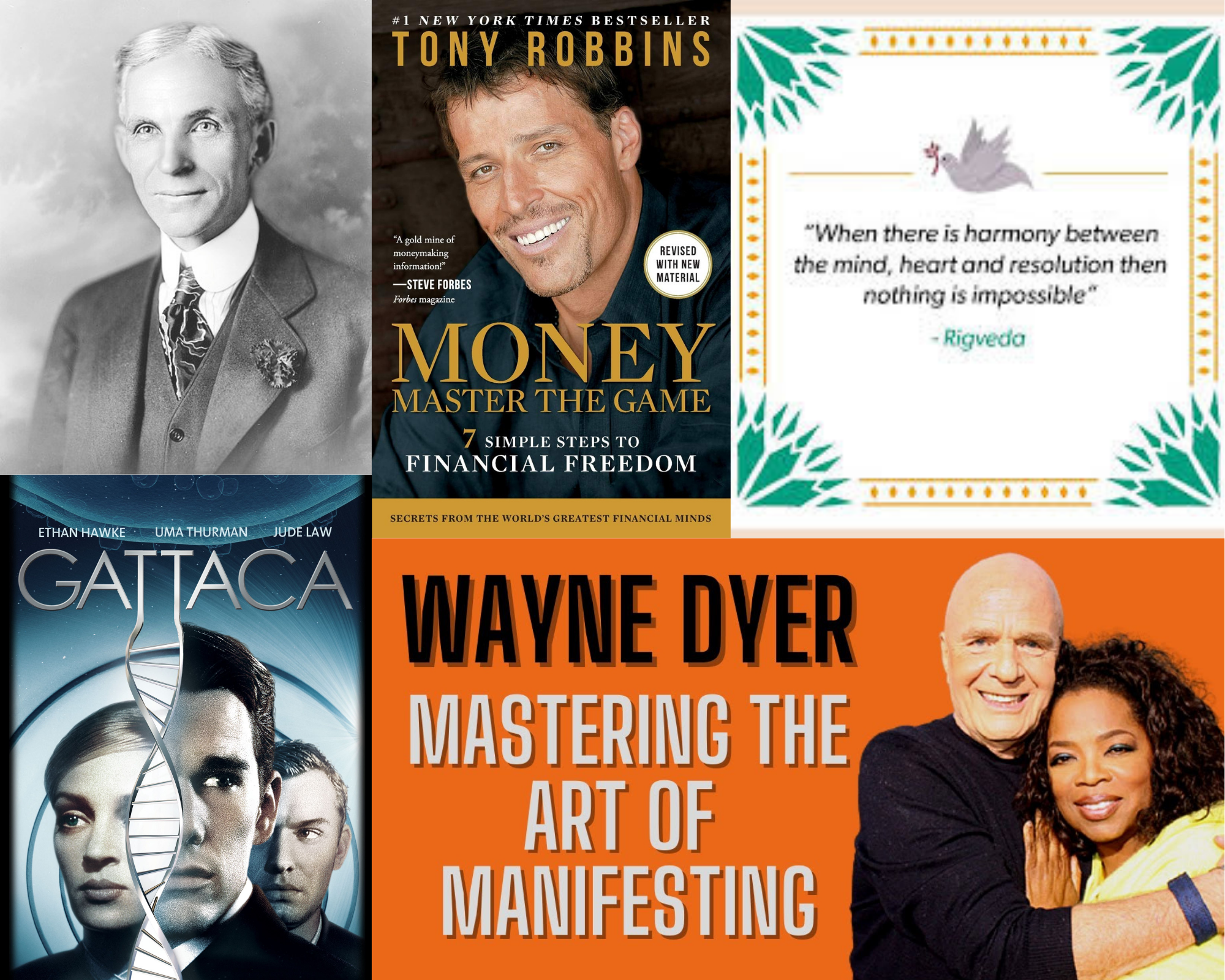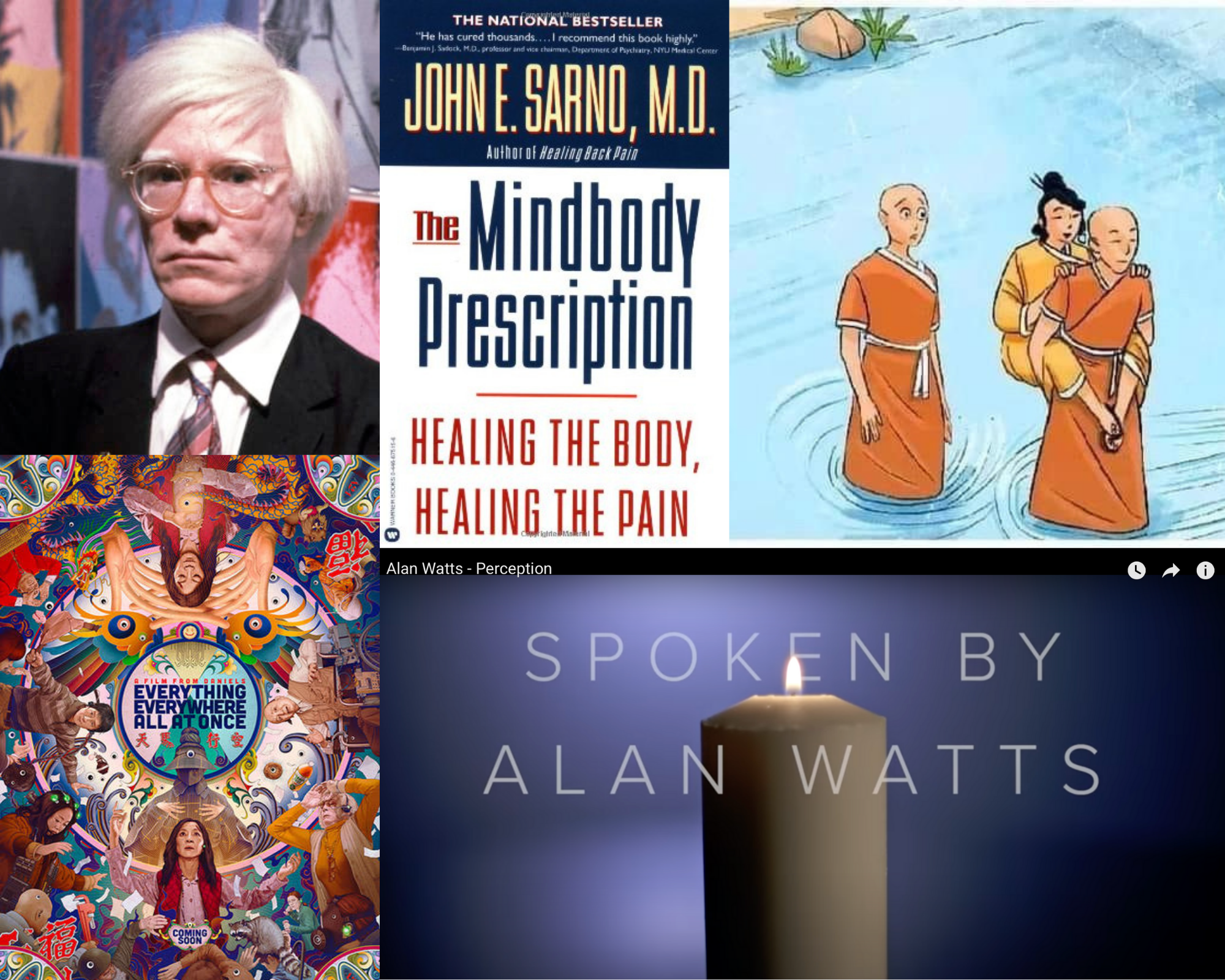Sunday Supplement #52 (May 8th, 2022)
Below is another Sunday Supplement with a quote worth sharing, a book worth reading, a movie worth watching, brainfood worth consuming, and a spiritual passage worth pondering.
I hope you take something away from these recommendations that enriches your week ahead!
Quote of the Week:
“If there is meaning in life at all, then there must be a meaning in suffering.”
– Viktor Frankl
Book of the Week:
The Really Hard Problem: Meaning in a Material World – Owen J. Flanagan
Owen Flanagan has the title of James B. Duke Professor ad Duke University, which is only given to a few faculty members with extraordinary records of achievement.
Flanagan teaches Philosophy and Neurobiology and has written extensively on the problem of consciousness and the meaning of life with regard to science and philosophy.
In The Really Hard Problem, Flanagan addresses how meaning is still possible in a material world without needing a supernatural explanation.
The Duke University professor uses concepts from philosophy, psychology, neuroscience, and evolutionary biology to outline his findings and beliefs. Flanagan also draws on practices from non-theistic spiritual traditions like Confucianism, Buddhism, and Stoicism.
The book outlines the concept of eudaimonia and how we can live a meaningful life through parameters like being moral, having true friends, opportunities to express our talents, experiencing beauty, and having trust.
Flanagan’s work is a brilliant insight into a human spiritual experience that doesn’t shy away from science. His books are worth checking out.
Movie of the Week:
Steven Spielberg’s Catch Me If You Can is based on the autobiography of con artist Frank Abagnale Jr.
The movie opens with FBI agent Carl Hanratty (played by Tom Hanks) escorting Frank Jr (played by Leonardo DiCaprio) back to the United States.
Various meaningful moments of Frank Jr’s life are revisited to show how the young man became a notorious check forger. Along his journey, he took on the alias of a pilot, doctor, and lawyer as he conned millions of dollars with forged checks.
The story brilliantly explores honesty in interpersonal relationships as well as the upside and downside of wealth and fame versus being seen and loved for who you are.
There aren’t many movies that delve into moral themes deeply while having an adventurous and entertaining story as the vessel.
Catch Me If You Can didn’t win any Oscars and was only up for two categories at the Academy Awards in 2003. Regardless, it’s worthy of remembering and watching years later.
Brainfood of the Week:
Existentialism: Finding Meaning in Suffering | Freedom in Thought
The video opens with the question, “What does suffering mean to you?”
Viktor Frankl’s life and beliefs and Existentialism become the focus of the video to answer and find meaning in the question.
Frankl is an Austrian neurologist, psychiatrist, philosopher, writer, and Holocaust survivor. He famously wrote the book Man’s Search For Meaning, chronicling his time as a prisoner and his psychotherapeutic method of logotherapy.
The video discusses how essentialism was a widespread belief before World War II. The belief states that we are all born with an essence and a purpose.
However, many questioned this belief after the atrocities of WWII. It was hard to believe in a predestined meaning if all experiences were suffering.
Existentialism then became a wider spread philosophy. Its core concept is that we are born without a purpose and are left to define our own.
Some people believe this to be a depressing viewpoint because there is no ultimate or objective meaning. Others see it as a beautiful and liberating philosophy where we can have infinite amounts of meaning.
Frankl’s philosophy allowed him to find meaning in his suffering.
“When we are no longer able to change a situation – just think of an incurable disease such as inoperable cancer – we are challenged to change ourselves.”
Life isn’t about avoiding suffering or stress at all costs. Finding meaning in suffering or finding something worth suffering for is a worthy goal.
The video delves into more positive sides of Existentialism, and I encourage you to view the whole thing. If you enjoy their breakdown of philosophical concepts, I feature another Freedom in Thought video in Sunday Supplement #27.
Closing Spiritual Passage:
“Greater in battle than the man who would conquer a thousand-thousand men is he who would conquer just one— himself.”
– Dhammapada 103
The Dhammapada is a collection of sayings from the Buddha and is one of the most widely read and known Buddhist scriptures.
This verse reminds me of the true power of having control over oneself.
There are many external obstacles and achievements to navigate in life, but one person is always with you along the way.
I believe some of the most important life lessons are learning to be happy with yourself and being fully conscious of your actions.
The Dhammapada verse reminds me that personal growth and well-being are two things worthy of a lifetime commitment.
Catch yourself in the moment, and have a blessed week ahead!
2 Comments



